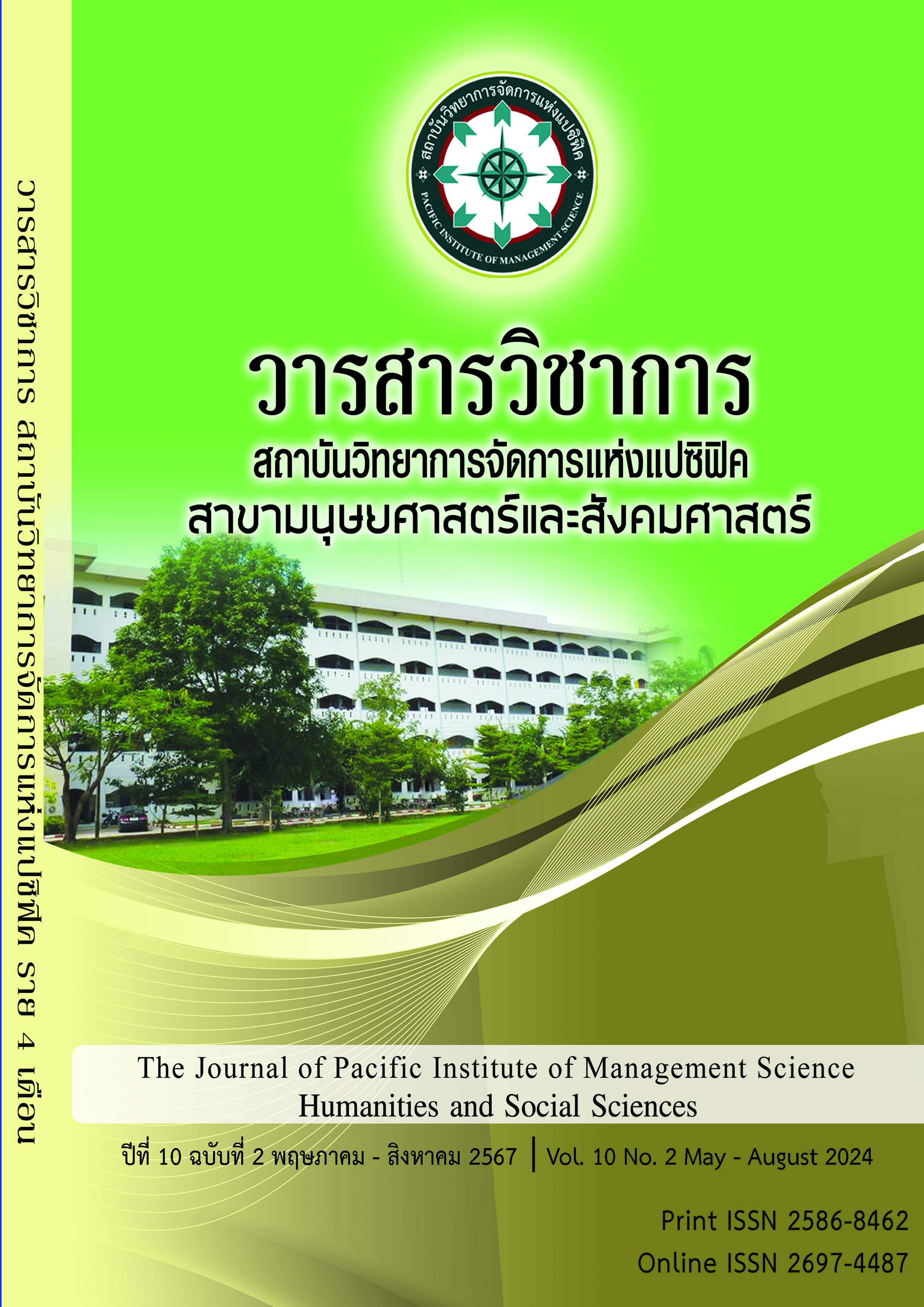The Efficiently Enchantment for People Service of Depart of Business Development, Ministry of Commerce
Keywords:
Department of Business Development, Model, Service Improvement, EfficiencyAbstract
This research aims to study (1) the model and effectiveness of the Department of Business Development (2) to recommend strategies for the Department of Business Development. The research method is a qualitative research. The data used for analysis is obtained from a literature review. Data were collected from 18 key informants, purposively selected from relevant parties by in-depth interviews with a structured, face-to-face interview method from executives and personnel working at the Department of Business Development using an in-depth interview form. Data were analyzed by descriptive analysis.
The research results found that (1) the results of the Department of Business Development's public service delivery are very important to the strategy of the Department of Business Development. (2) Factors affecting the model of the Department of Business Development's public service delivery include (2.1) personnel efficiency, (2.2) service system efficiency, (2.3) organizational management system development, (2.4) technology system development, and (2.5) public relations development. (3) Effective approaches to the model of enhancing public service delivery of the Department of Business Development include (3.1) developing service excellence with innovation, focusing on enhancing public service excellence with innovation. and raising the level of public service to quality standards and international standards (3.2) creating good governance for the Thai business sector and (3.3) developing organizational potential to reach maximum efficiency by developing a modern business registration system, creating a complete business data warehouse and increasing convenience in accessing information, strengthening small entrepreneurs and raising businesses to quality standards, developing learning organizations to achieve maximum efficiency and effectiveness.
References
กรมพัฒนาธุรกิจการค้า กระทรวงพาณิชย์. (ม.ป.ป.). การรับรองสำนักงานบัญชีคุณภาพ. สืบค้นเมื่อ 30 มิถุนายน 2558, จาก http://www.dbd.go.th/ewt_news.php?nid=2813&filename=index. กรมพัฒนาธุรกิจการค้า
กระทรวงพาณิชย์. (2558). ประกาศ หลักเกณฑ์และเงื่อนไขการรับรองคุณภาพ สำนักงานบัญชี พ.ศ. 2558. กรุงเทพฯ: กรมพัฒนาธุรกิจการค้า.
กรมอาเซียน. (2557). ประชาคมเศรษฐกิจอาเซียน (ASEAN Economic CommunityAEC).กรมอาเซียน, กระทรวงการต่างประเทศ, กรุงเทพฯ.
กระทรวงอุตสาหกรรม. (2559). ยุทธศาสตร์การพัฒนาอุตสาหกรรมไทย 4.0 ระยะ 20 ปี (พ.ศ. 2560 – 2579).
ณัฐยา สินตระการผล, แปล, (2557). หลักคิดเรื่องกลยุทธ์และการแข่งขัน. (พิมพค์ร้ังที่1). แปลจาก เรื่อง Understanding Michael Porter: The Essential Guide to Competition and Strategy กรุงเทพฯ: เอ็กซ เปอร์เน็ท.
ธร สุนทรายุทธ. (2551). การบริหารจัดการเชิงปฏิรูป : ทฤษฎี วิจัย และปฏิบัติทางการศึกษา. กรุงเทพมหานคร: เนติกุลการพิมพ์.
นภัสนันท์ พรรณนิภา และวิรัช วิรัชนิภาวรรณ. (2560). การบริหารจัดการการประกันภัยรถยนต์ของสำนักงานคณะกรรมการกำกับและส่งเสริมการประกอบธุรกิจประกันภัยตามปรัชญาของ เศรษฐกิจพอเพียง. วารสารสมาคมนักวิจัย. 22(3), 207-217.
นิพนธ์ วรรณเวช. (2548). การวิเคราะห์ปัจจัยทีสัมพันธ์กับประสิทธิผลของการจัดการศึกษาระดับ บัณฑิตศึกษาในสถาบันราชภัฏ. วิทยานิพนธ์ปริญญาดุษฎีบัณฑิต มหาวิทยาลัย ศรีนครินทรวิโรฒ
ปรัชญา เวสารัชช์และคณะ.(2546).นโยบายสาธารณะ พรทิพย์ เย็นจะบกและกมลรัฐ อินทรทัศน์. (2556). กระบวนการทำงานอย่างมีประสิทธิภาพและมีความสุข. สืบค้นเมื่อ 12 กันยายน 2559, จากhttps://pirun.ku.ac.th/~agrpct/envelop/working%20process1. doc/.
สำนักงานคณะกรรมการพัฒนาระบบราชการ. (2556). แผนยุทธศาสตร์การพัฒนาระบบราชการไทย (พ.ศ. 2556 – พ.ศ. 2561). กรุงเทพฯ: วิชั่น พริ้นท์ แอนด์ มีเดีย จำกัด.
Downloads
Published
Issue
Section
License
Copyright (c) 2024 Pacific Institute of Management Science

This work is licensed under a Creative Commons Attribution-NonCommercial-NoDerivatives 4.0 International License.
บทความที่ได้รับการตีพิมพ์เป็นลิขสิทธิ์ของ สถาบันวิทยาการจัดการแห่งแปซิฟิค
ข้อความที่ปรากฏในบทความแต่ละเรื่องในวารสารวิชาการเล่มนี้เป็นความคิดเห็นส่วนตัวของผู้เขียนแต่ละท่านไม่เกี่ยวข้องกับสถาบันวิทยาการจัดการแห่งแปซิฟิค และคณาจารย์ท่านอื่นๆในสถาบันฯ แต่อย่างใด ความรับผิดชอบองค์ประกอบทั้งหมดของบทความแต่ละเรื่องเป็นของผู้เขียนแต่ละท่าน หากมีความผิดพลาดใดๆ ผู้เขียนแต่ละท่านจะรับผิดชอบบทความของตนเองแต่ผู้เดียว







